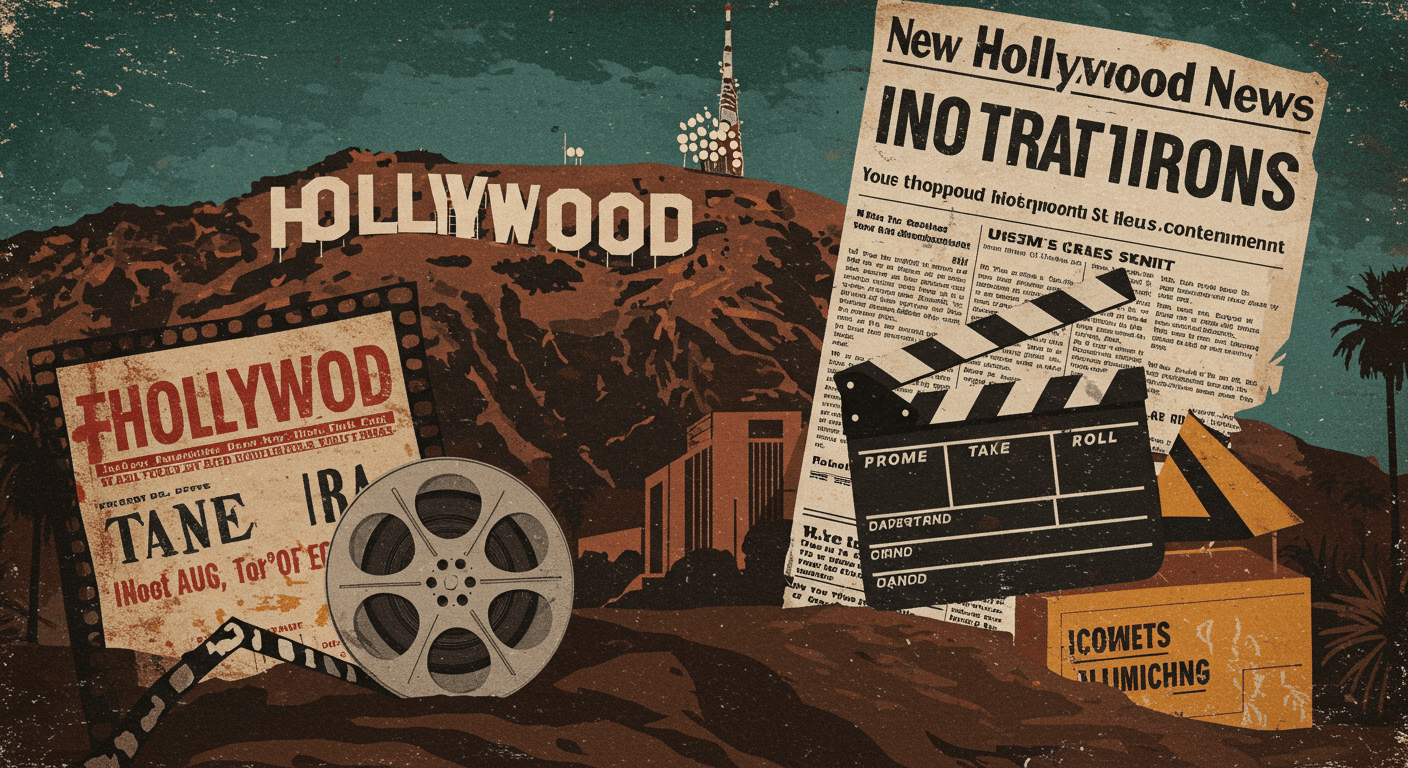U.S. President Donald Trump declared an immediate 100% tariff on all foreign motion pictures because he claimed the domestic film industry faced critical threats. The new Trump tariff policy selects foreign movies for foreign impediments that strive to relocate movie production within American borders. The U.S. Trade Representative has initiated this procedure under the administration, creating additional worldwide trade disputes.
The new development arrives as Trump’s tariffs continue to affect different business sectors and create worries about increasing international prices. According to Trump, foreign nations are damaging American filmmaking through financial packages that pull filming projects from the U.S. He characterized this matter as a threat to national security and blamed foreign countries for exploiting films as propaganda weapons.
The American movie industry registered a 26% decrease in production budgets throughout the previous year, although this trend increased concern about long-term industry expansion. Trump declared that the new policy would combat this decrease since it would bring production facilities back into American communities. The government views safeguarding American studios as essential for sustaining cultural and economic sustainability in the long term.
Trump Tariffs Raise Doubts in Hollywood
Foreign countries like Australia, Canada, and the UK have seen increased production spending due to incentives for studios. Trump tariffs challenge the current entertainment trend by forcing U.S. film companies to operate production within their national territories. Hollywood studios’ films produced outside the country make it difficult to enforce specific trade policies.

Various movies, including Deadpool & Wolverine, Wicked, and Gladiator II, filmed their production outside the United States because of reduced expenses and government funding opportunities. The new Trump tariffs have no specified rules regarding their application to American studios that produce films outside the United States. The movie sector must officially determine which section of the film production process the tariffs will target.
Commerce Secretary Howard Lutnick told the media that the administration actively pursues policy details. Expert analysis shows that Trump’s patriotic approach to the move may result in production delays and cost increases. Foreign distribution channels’ response to American studios could present operational difficulties through reactive measures.
Trade Talks Stall Amid Rising Tariffs
The Trump tariffs have already created ripple effects across the global economy, with several countries announcing countermeasures. China decreased its film import limits from the United States due to perceived discrimination and deteriorating American popularity among Chinese viewers. Trump then raised duties on different Chinese imports, which heightened the trading row.
The White House declared tariffs on Chinese imports totaling up to 245%, considering previous rates. The trade conflict rose in severity when Beijing implemented 125% import duty rates on U.S. products. The global community is currently paying a 10% penalty tax, which will end when July arrives.
Assured conflicts in foreign relations have not inhibited Trump from negotiating with other nations’ leaders to establish bilateral pacts. Trump maintains discussions with various countries, including China, although he has suspended face-to-face negotiations with the Chinese. The latest media appearances and press briefings from the president proved there were no new trade agreements scheduled.
Hollywood Ambassadors Target Film Investment Return
Trump nominated actors Jon Voight, Mel Gibson, and Sylvester Stallone as special ambassadors responsible for U.S. film production promotion. Trump appointed these ambassadors to bring back movie production investment to Hollywood while changing the global business pattern. The administration considers Hollywood to be facing problems while recognizing its unrealized market potential.

According to his administration, the appointed ambassadors will assist Trump in attracting investors and creating jobs within the United States film industry. The initiative emerges at a time when ticket sales keep declining, along with intensified global rivalry for the film industry’s supremacy. Trump tariffs aim to give local studios a competitive edge by reducing reliance on foreign locations.
Multiple industry reports confirm that film production activities dominate in the United States, while investment amounts decrease. According to ProdPro data released last year, production spending across the U.S. reached $14.54 billion. Industry experts suggest that the 26% revenue decrease demands immediate action, according to recent statements by Trump government officials.
FAQs
What are Trump tariffs on foreign movies?
Trump tariffs refer to the 100% import tax on foreign-made movies announced to support the U.S. film industry.
Will the tariffs affect U.S. companies filming abroad?
Details are unclear, but the administration has not confirmed whether American studios filming overseas will be impacted.
Why did Trump impose these tariffs?
Trump said foreign nations offer unfair incentives and use films for propaganda, which he sees as a national threat.
How will this impact the global film market?
Experts expect price hikes, reduced imports of U.S. films abroad, and potential retaliation from key trade partners.
What happens next in the trade talks?
The administration continues trade discussions but has not announced new deals or revised tariffs as of now.
Glossary of Key Terms
Trump tariffs – A set of import taxes imposed by former President Donald Trump on foreign goods, including films, to protect U.S. industries.
U.S. Trade Representative – The federal agency responsible for developing and recommending U.S. trade policy to the President.
Production spending – The total financial investment made in creating a film, including pre-production, shooting, and post-production costs.
Quota – A government-imposed trade restriction limiting the number or monetary value of goods that can be imported or exported.
Retaliatory tariffs – Import taxes imposed by a country in response to tariffs placed on its own goods by another country.





























